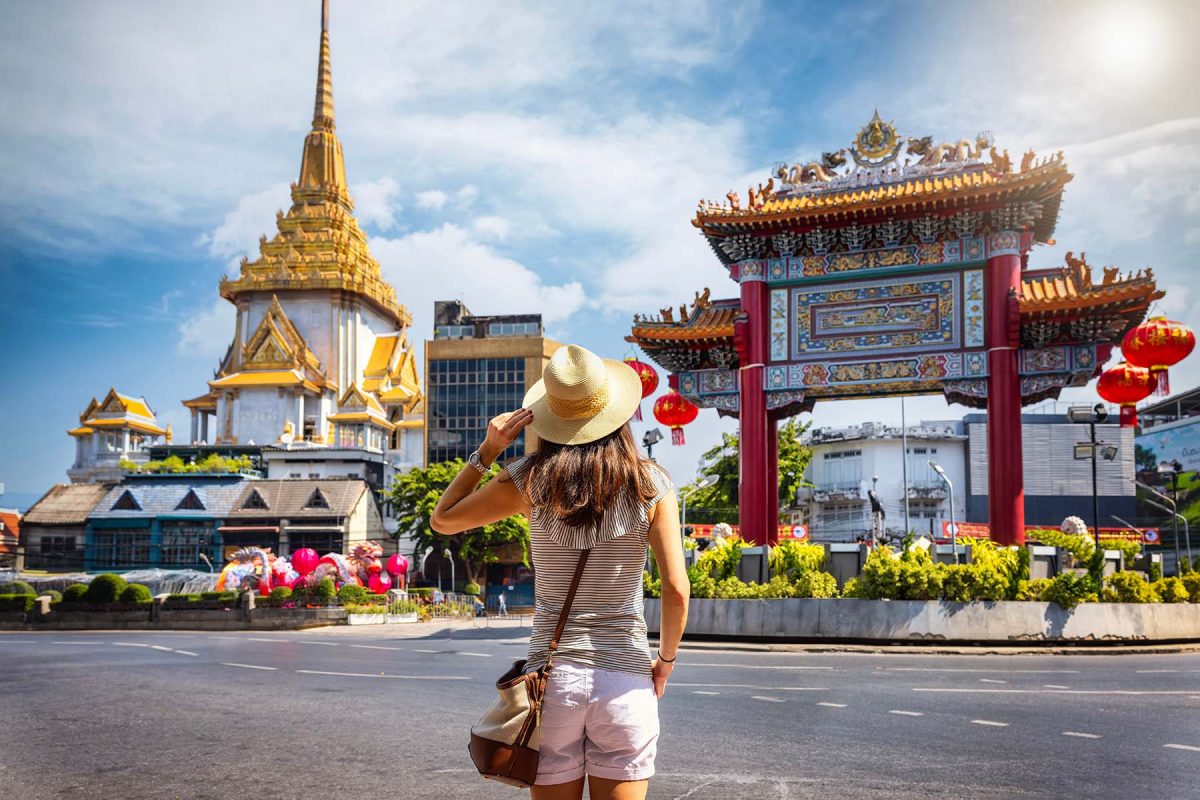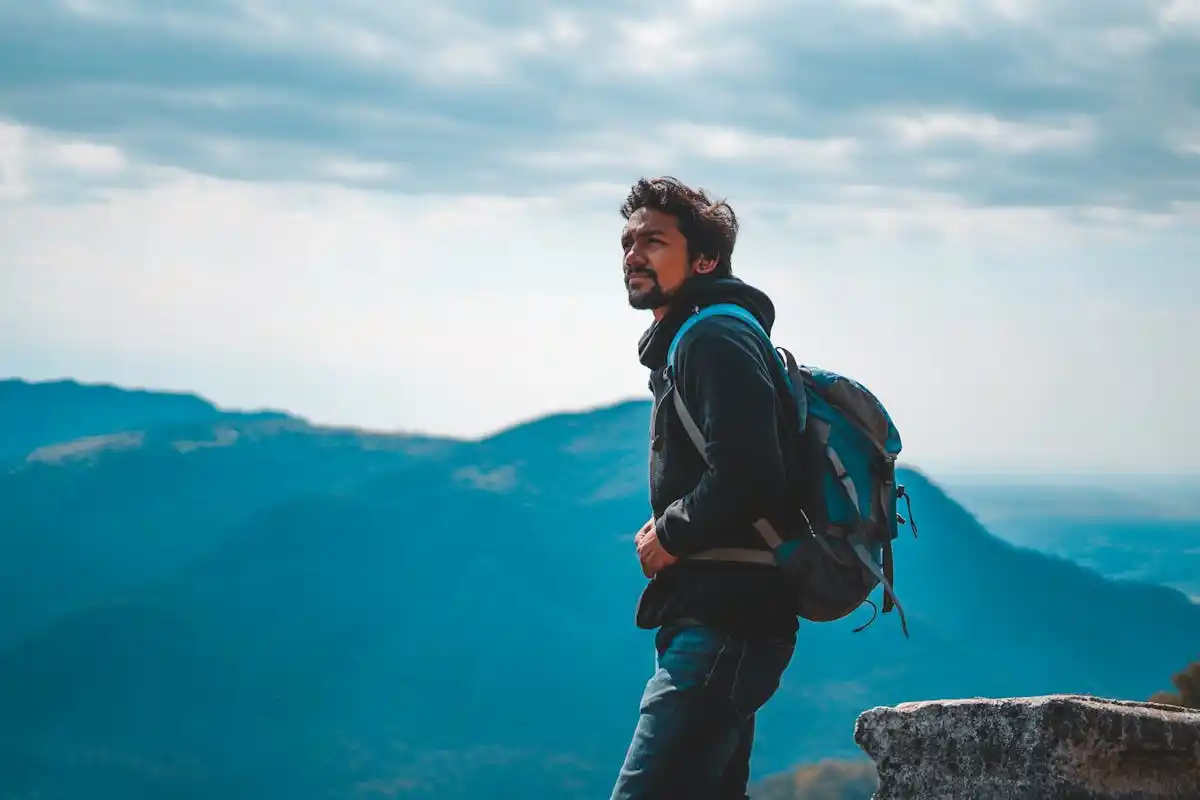New Research: How Brands Can Work Together to Win Back Customers in the New Normal

Skift Take
This sponsored content was created in collaboration with a Skift partner.
Travel won’t simply bounce back. While there’s much to be optimistic about, travel recovery is looking more and more like a marathon than a sprint. Travel brands can set a pace for the road ahead by understanding what business and leisure travelers are looking for to feel safe enough to travel again.
Collinson’s new research study, The Return Journey, combines new insights on traveler sentiment with early research on how travelers felt about the travel experience pre-pandemic.
By looking at customer needs through this continuum, travel brands — as well as complementary verticals that have a vested interest in travel’s recovery — can begin to understand how to balance new and necessary health and safety protocols with an upgraded travel experience that puts mental wellness at the forefront.
SkiftX explored the study’s key findings with David Evans, joint CEO at Collinson, which owns and operates the Priority Pass global lounge and experiences program and delivers travel insurance and medical assistance services, including Covid-19 testing to travelers.
“There’s clearly huge pent-up demand for leisure travel, demonstrated by the sharp spikes in bookings we’ve seen around the world in response to various government announcements about lowering travel restrictions or as vaccine rollouts meet key milestones,” said Evans. “But as our research shows, even before the pandemic, there was a huge opportunity to provide a travel journey that attended better to people’s physical and mental wellness.”
ADDRESSING MENTAL WELLNESS WILL BE KEY TO TRAVEL RECOVERY
Collinson’s pre-pandemic research showed that 43 percent of leisure travelers felt stressed at least once on their journeys. Nearly one in three said travel journeys had become more stressful over the past five years, and one in five even agreed that getting through the airport made them feel panicked or scared.
Physical wellbeing was also a pre-pandemic concern, with 87 percent of respondents saying they’d become more worried about their physical wellbeing while traveling than they had been five years prior.
“After the pandemic hit, physical wellbeing became priority number one for people as they traveled, just as it did in other walks of life,” Evans said. “But people remain concerned about the impact of travel on their mental wellbeing.”
Research conducted during the pandemic showed that 88 percent of passengers would be looking for visible health and hygiene measures in the airport in order to feel safe, and 73 percent said they’ll be prioritizing their mental wellbeing more when they travel now than they did before Covid-19.
“It was surprising to see that mental wellness was still nearly as important as physical wellness when it comes to travel, even during a pandemic,” Evans said. “Many of the changes the industry has applied to date relate to the latter, while the former could really be key to travel recovery. Continuing to cater to traveler’s physical wellness concerns, as many travel brands did by introducing new health standards and protocols, will be important in the first stage of recovery, but the industry needs to be aware of the importance of mental wellness, which will come through stress-free experiences.”
When travelers were asked before the pandemic what wellness services they wanted, they listed things like spa treatments, mindfulness practices, airport sleep pods, and yoga classes.
“You’d be safe to assume that travelers will still be seeking these services in the new normal of the future,” Evans said. “If the industry takes heed, perhaps we’ll see more of these on offer as add-ons at the time of booking, or even offered as rewards as part of loyalty programs.”
QUARANTINES HAVE HAD A PROFOUND IMPACT ON BOOKING
It’s understandable that quarantine protocols have proven to be a barrier to people making bookings. When Collinson asked why people might be hesitant to travel after the pandemic, the top reason given was needing to quarantine either on arrival or return.
Likely in alignment with wanting to travel without lengthy quarantines, respondents were in favor of testing for travel. Eighty three percent said they wanted tests on arrival and 82 percent said they wanted tests on departure. This demonstrates an interesting push and pull between the industry and consumers. To date, testing has largely been seen by the travel sector as a necessary requirement of governments to limit spread. However, tthis research shows how important testing services are overall as a way to rebuild traveller confidence and reassure people that they and their fellow passengers have all taken tests and are safe to fly.
“We hope governments worldwide will pay attention to this when finding a safe way to ease restrictions,” Evans said. “It’s great to see vaccine programs around the world being successfully implemented, but we know testing is the best way to get people safely in the skies again while limiting spread. And being able to book to take a test in advance can also alleviate stress while travelling as passengers have the reassurance that they’re okay to fly. Furthermore, if passengers are reassured that testing means avoiding long quarantine periods, then we’ll be sure to see more people making bookings.”
BUSINESS TRAVEL WILL REEMERGE, BUT WELLBEING MUST BE PRIORITIZED
Before the pandemic, business travelers were already burning out. In Collinson’s research, nearly one-third of business travelers admitted that they’d given their employer a fake excuse to avoid business travel, and 51 percent said they thought their employer would rather they prioritize the cost of travel over their own wellbeing when booking business trips.
“Given business traveler concerns before the pandemic, it’s safe to assume they’ll be looking to their employers to offer the right support to make them feel safe and taken care of. And that will require corporate Travel Risk Management programs that address both physical and mental wellbeing concerns. It could be as simple as explaining exactly what’s on offer and how employees can access these services.”
During the pandemic, the precipitous decline in cross-border travel had a major impact on business travelers. Collinson’s research showed that 81 percent have seen their job affected by a lack of cross-border business travel over the past year. A third of respondents said that not seeing their clients and prospects face-to-face had negatively impacted the way they do business and has made their company less productive.
“There’s a common perception that business travel could be slow to recover, as it can be readily replaced with video conferencing. But our research shows just how much it’s affecting employee performance and productivity,” Evans said. “Yes, business travel may be slower to recover than leisure travel, but this is some reassurance for the business travel industry that employers will want business travel to resume when they can.”
LEISURE TRAVELERS WILL CONTINUE TO EXPECT QUICK AND CONTACTLESS AIRPORT EXPERIENCES
Before the pandemic began, 25 percent of airline passengers said they wanted contactless experiences such as food ordering and duty-free shopping. During Covid-19, the expectation for contactless experiences increased to 42 percent.
“We’ve actually seen first-hand that this is something passengers are looking for,” said Evans. “After the pandemic hit, we pivoted the services across locations within our airport lounge network to cater to new health standards, such as shifting from buffet food services to a ‘food and drink to your seat’ ordering system.”
Travel brands looking to improve upon prior experiences should also consider that two-fifths of travelers say a quick, efficient security queue will be the hallmark of a great future travel experience for them. Meanwhile, one-third want smooth check-in experiences and flights running on time.
“While the latter might be hard to always guarantee, we’re seeing some steps in the right direction on the first two, with pre-booked security options being trialed at Manchester Airports Group and, of course, more and more airports offering automated check-in experiences,” said Evans. “But they’re certainly something more brands could either consider adding as a proposition or working with other providers to offer as an add-on during the booking process.”
THINK SMALLER, MORE ACHIEVABLE CHANGES
Across the travel industry and throughout the wider business community, there needs to be an acceptance that recovery may be a slow process. The prospect of making big changes or big investments at this time might seem impossible with scarce funding.
For example, Evans shared, “Brands that want to drive loyalty, both now and in the future, can offer access to airport lounges, spas, yoga classes, and sleep pods, as well as service upgrades such as speedy boarding, extra legroom, or an extra seat next to them on the plane.”
These slight changes mean companies can keep engaging with travelers, even when they can’t take to the skies.
“Rather than expecting an instant rebound — one where these improvements are immediately made — we need to first come together as an ecosystem to encourage people to book again, to get planes back in the sky, and fill hotel rooms. And that will all need to start with safety in mind,” Evans said. “It’s why we’re suggesting smaller, more achievable changes for now.”
This content was created collaboratively by Collinson and Skift’s branded content studio, SkiftX.




